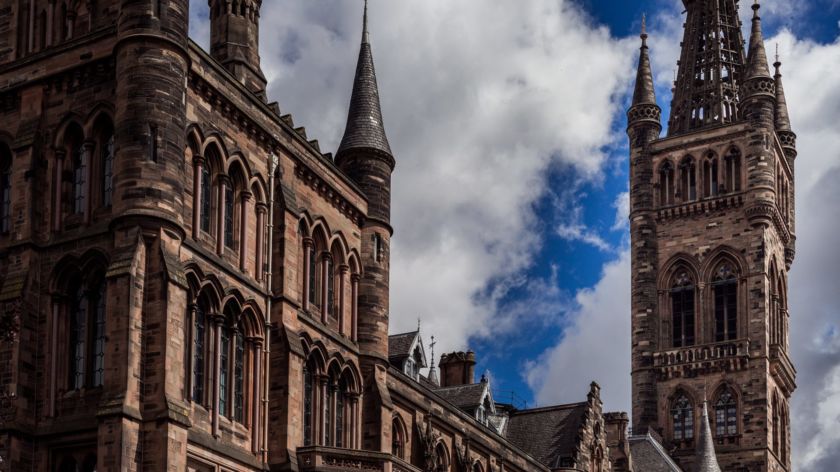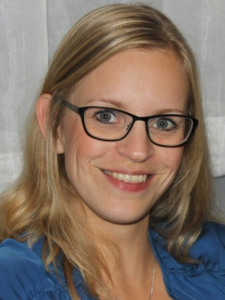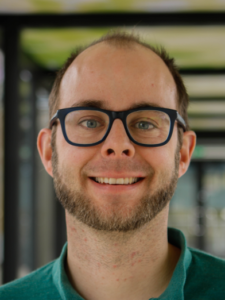-
 University of Glasgow. Photo: Nicolas Mirguet (CC)
University of Glasgow. Photo: Nicolas Mirguet (CC)
Radboud University is increasingly committed to internationalising research and education. For example, researchers, lecturers and support staff will soon be able to apply for funds to collaborate with the University of Glasgow once again, and the European collaboration Neurotech is launching today. ‘It’s like a new love affair.’
The university has partnerships with various universities around the world. ‘For example, with Leuven, Munster, Western University Ontario and within the new Neurotech European University of Brain and Technology, as well as with universities such as Oxford’, says Suzanne Kersten, policy officer in the International Office. ‘We enter into partnerships with universities that the university identifies with. That could be because of their educational and research quality, their profile or their international ambitions.’
One of the universities with which a collaboration has been built in recent years is the University of Glasgow. The Radboud-Glasgow Collaboration Fund has been in place since 2018, and the first results can now be seen, says Kersten. ‘Prior to this fund, there had been a growing relationship between the two universities for some time.’ There were exchange contracts, and joint courses were offered during the Radboud Summer School. ‘There was actually no faculty here that did not have contact with that university’, says Kersten.
Summer School
This partnership looks simple in practice. Kersten is the official secretary on the Radboud side of the partnership, and she has a colleague on the other side of the water. Together they support a steering committee, which consists of three members in Glasgow and three members here. This group meets four times a year to ensure that the partnership runs smoothly, to assess project applications for collaboration, and to explore further possibilities. ‘For example, we are looking at how our summer schools can collaborate more intensively and we are now exploring the possibilities of virtual collaboration’, says Kersten.
The University of Glasgow had the idea to set up a joint fund. ‘They already had that with a few other partners’, she says. Every year in January, the Radboud-Glasgow Collaboration Fund puts out a call for employees to submit ideas for collaboration in the field of education and research. ‘The first time, we were really anxious’, Kersten laughs. ‘You never know whether they’ll be enough people with good plans.’ Twenty-four plans were submitted in response to that call, seven of which were funded.
A couple
Like all employees, Assistant Professor Dries Lyna saw the call from the fund appear in his mailbox one day. ‘Usually, I read that kind of email quickly and get on with my day’, he says. ‘But I was interested in this one. I’d already met someone from the history department at the University of Glasgow. I immediately went to see who else was there.’ Lyna researches colonial cities in eighteenth-century Asia. ‘After a brief search, I discovered that the department there, like ours, has a special affinity with the history of colonialism and slavery’, he recalls.
‘You put together expertise that you wouldn’t otherwise put together’
He approached the head of the department and invited him for a meeting. ‘It was a bit like starting a new love affair’, he says with a laugh. ‘You go on a kind of speed date, find out what you have in common. Last summer, we were going to offer a summer school course together, presenting ourselves to the world as a couple.’
Lyna also involved historians Coen van Galen and Jan Kok. ‘Coen has researched Surinamese slave registers from 1830 to 1861, and now he’s shifting his focus to slavery on Curaçao’, Lyna explains. ‘Jan is Professor of Historical Demography and conducts research into topics like mortality patterns and infanticide in eighteenth-century Sri Lanka, when the island was under Dutch rule.’ The core team now consists of three researchers in Nijmegen and three in Glasgow.
‘You put together expertise that you wouldn’t otherwise put together,’ Lyna says. ‘Qualitative and quantitative research, for example. Everyone had a different area of expertise within the subject’, he says. ‘In our hyper-specialised scholarship, everyone is usually on their own island. This way, you can do much broader research.’
Far-reaching plans
Various aspects of slavery and colonialism are being examined in this research. ‘Coen van Galen and one of the researchers in Glasgow are looking at the import of slaves from Africa into Suriname’, Lyna says. ‘I’m focusing more on freed slaves. So I’m not looking at what their lives were like as slaves, but at what happened when someone received a letter that he or she was free. How did people build their lives, and how did this influence the choices and options of their children and grandchildren?’
Meanwhile, the researchers have applied for and received an extension for the project. On 7 and 8 December, there will be an e-workshop in which they will discuss the subject with researchers. ‘We have far-reaching plans to eventually offer a Master’s degree’, says Lyna. ‘It should be about forced labor, slavery and reparative justice. As a society, how do you deal with such a past? That programme would be taught partly here and partly in Glasgow.’
‘There will be another call in January’, Kersten says. ‘It’ll be open from 11 January to 1 March.’ In addition, there is money available for individual mobility, meant to enable a ‘speed date’ and putting together an application. ‘That way, people can see where they can find each other.’
Neurotech
The European University for Brain and Technology (Neurotech) launched today. This too, is a far-reaching international collaboration. More than 900 people will attend the virtual opening this afternoon, where speakers from the collaborating universities and from the Erasmus programme will be present.
Neurotech is an alliance between eight universities: Radboud University, Miguel Hernández University of Elche (Spain), Karolinska Institutet (Sweden), the University of Bonn (Germany), Boğaziçi University (Turkey), Oxford University (UK), Luliu Hațieganu University of Medicine and Pharmacy Cluj-Napoca (Romania) and the University of Debrecen (Hungary). The universities will collaborate in the field of neurotechnology, both in education and in research. This means that joint research projects will begin, as well as joint programmes and summer school courses.
Neurotech is a European University. In 2017, Emmanuel Macron stated that European universities can only compete globally if they work together. This has been taken up by the European Commission, and there are now 41 such collaborations throughout Europe. Neurotech is the first European University in which Radboud University is involved.





